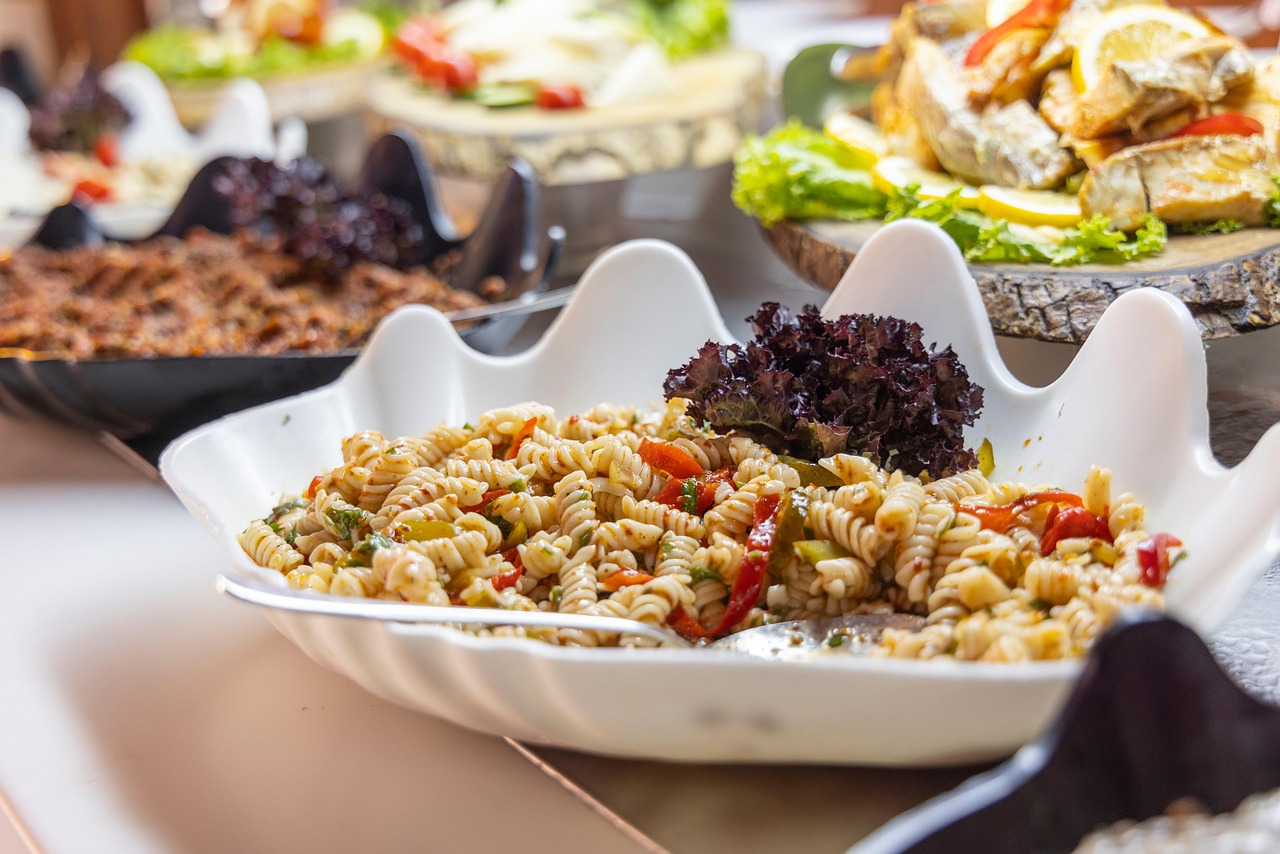Have you ever scooped up a comforting bowl of orzo pasta and wondered—is this actually good for me? This rice-shaped pasta is a versatile favorite in salads, soups, and Mediterranean dishes, but its nutritional profile often flies under the radar. Let’s break down orzo pasta nutrition, its health benefits, potential drawbacks, and how to enjoy it smartly.
What Is Orzo?
Orzo (Italian for “barley”) is a small, rice-shaped pasta traditionally made from semolina flour. Despite its grain-like appearance, it’s 100% pasta. You’ll find it in:
-
Italian soups (like minestrone)
-
Greek dishes (kritharaki)
-
Creamy risotto-style recipes
But is it just empty carbs, or does it offer real nutritional value?
Orzo Pasta Nutrition: The Breakdown
A standard 1-cup (about 140g) cooked serving of traditional white orzo provides:
| Nutrient | Amount | % Daily Value (DV) |
|---|---|---|
| Calories | 210 | 10% |
| Carbohydrates | 42g | 15% |
| Fiber | 2g | 7% |
| Protein | 7g | 14% |
| Fat | 1g | 1% |
| Iron | 1.5mg | 8% |
| Selenium | 37mcg | 67% |
| Folate (B9) | 102mcg | 25% |
(Source: USDA FoodData Central)
Key Takeaways:
✔ Moderate protein – More than rice or quinoa.
✔ Low fat – Naturally heart-friendly.
✔ Rich in selenium – Supports immunity and thyroid health.
❌ Low fiber – Refined orzo lacks the fiber of whole grains.
White vs. Whole Wheat Orzo: Which Is Better?
Not all orzo is created equal. Here’s how they compare:
| Nutrient (per cup cooked) | White Orzo | Whole Wheat Orzo |
|---|---|---|
| Calories | 210 | 200 |
| Fiber | 2g | 5g |
| Protein | 7g | 8g |
| Glycemic Index (GI) | High (~65) | Moderate (~50) |
Why Choose Whole Wheat?
-
More filling (thanks to extra fiber)
-
Better blood sugar control (lower GI)
-
Extra nutrients (magnesium, zinc, B vitamins)
Tip: If you can’t find whole wheat orzo, try legume-based versions (like chickpea or lentil orzo) for a protein and fiber boost!
Health Benefits of Orzo Pasta
1. Provides Sustained Energy
Orzo’s carbohydrates fuel your brain and muscles—ideal for athletes or busy professionals. Pair it with veggies and lean protein for balanced energy.
2. Supports Thyroid Function
Thanks to its selenium content, orzo helps regulate thyroid hormones, which control metabolism.
3. Versatile for Healthy Meals
Unlike many refined pastas, orzo works well in:
-
Vegetable-packed salads (try spinach, cherry tomatoes, feta)
-
Protein-rich bowls (with grilled chicken or shrimp)
-
Fiber-boosted soups (add lentils or beans)
Potential Downsides of Orzo
1. High in Refined Carbs
White orzo is processed, stripping away fiber and some nutrients. Overconsumption may spike blood sugar.
Fix: Opt for whole wheat or legume-based orzo, or mix with quinoa for a healthier blend.
2. Easy to Overeat
Because of its small size, portion control is tricky. A “small” serving can quickly become 2+ cups.
Fix: Measure servings (½ cup dry = ~1 cup cooked) and bulk up with veggies.
3. Gluten Concerns
Traditional orzo contains gluten, making it unsuitable for celiac disease or gluten sensitivity.
Fix: Try gluten-free orzo (brown rice or corn-based).
How to Make Orzo Healthier: 5 Expert Tips
-
Boost Fiber – Mix with roasted veggies (zucchini, bell peppers) or whole grains (farro, barley).
-
Add Protein – Toss in grilled salmon, chickpeas, or tofu for a balanced meal.
-
Watch Sauces – Creamy sauces add calories; opt for olive oil, lemon, or pesto instead.
-
Control Portions – Stick to 1 cup cooked as a side or 1.5 cups as a main dish.
-
Choose Whole Grain – If available, whole wheat orzo offers more nutrients.
Orzo vs. Other Grains & Pastas
How does orzo stack up against popular alternatives?
| Food (1 cup cooked) | Calories | Carbs (g) | Fiber (g) | Protein (g) |
|---|---|---|---|---|
| White Orzo | 210 | 42 | 2 | 7 |
| Brown Rice | 218 | 46 | 3.5 | 5 |
| Quinoa | 222 | 39 | 5 | 8 |
| Whole Wheat Pasta | 180 | 37 | 6 | 8 |
Verdict: Orzo is middle-of-the-pack—not the most nutritious, but not the worst. Pair it wisely!
Final Verdict: Is Orzo Healthy?
Orzo can be part of a balanced diet if chosen and prepared wisely.
✅ Pick whole wheat or legume-based for extra fiber and protein.
✅ Pair with veggies and lean protein to balance the meal.
✅ Watch portions to avoid excess carbs.
For a healthier twist, try:
-
Chickpea orzo salad with cucumbers and lemon dressing
-
Whole wheat orzo soup with kale and white beans
The Bottom Line
Orzo Pasta Nutrition isn’t a “superfood,” but it’s far from unhealthy. With mindful choices, it can be a delicious, nutritious addition to your meals. Next time you enjoy it, remember: balance and variety are key!
Now it’s your turn: How do you like to eat orzo? Share your favorite healthy recipe in the comments!










